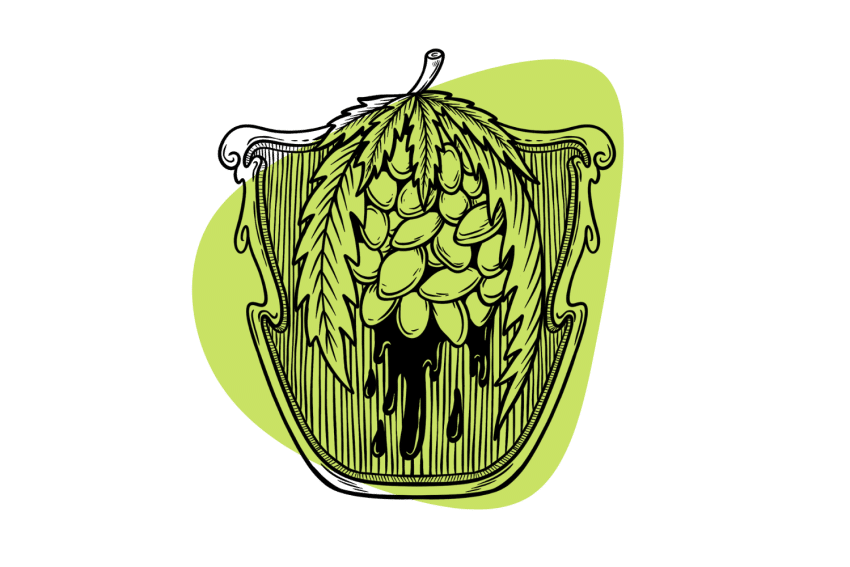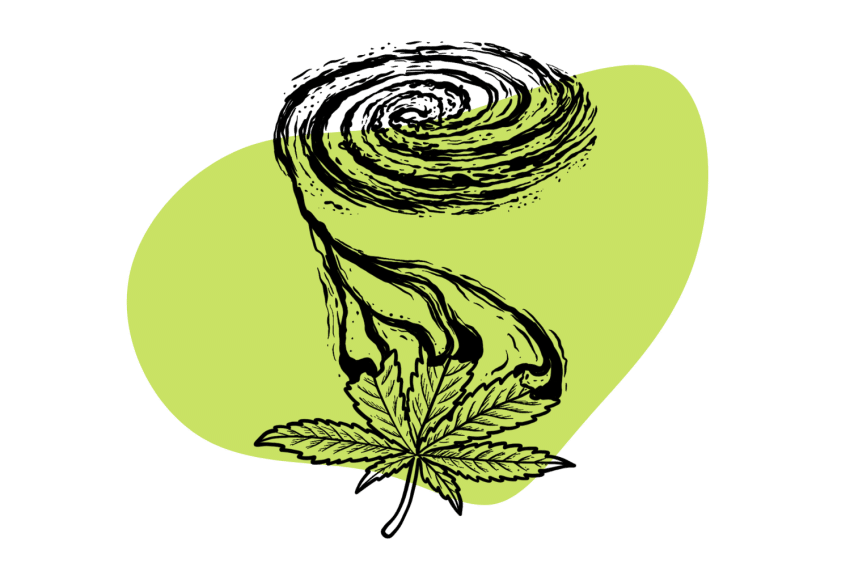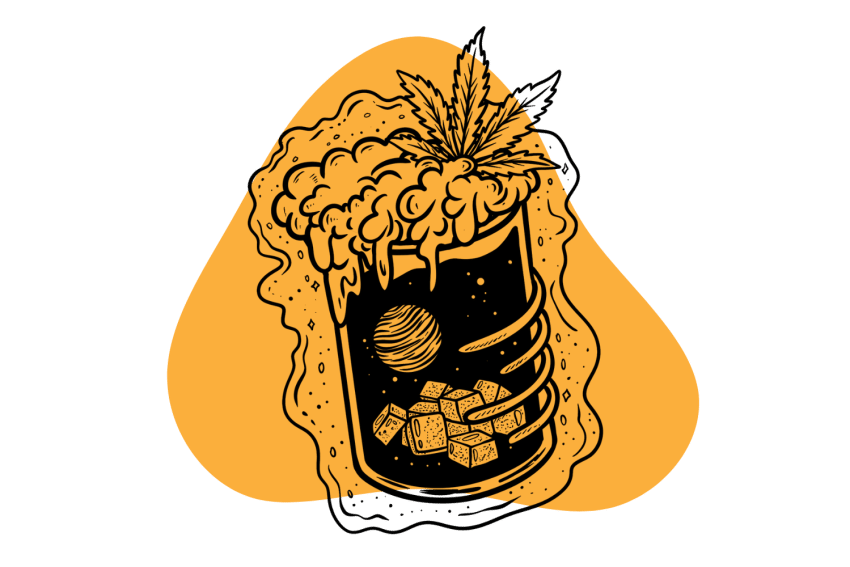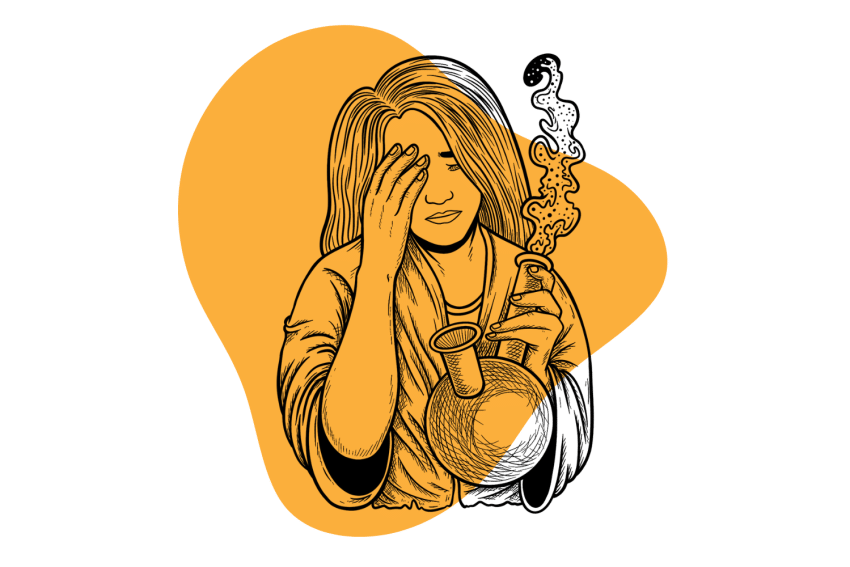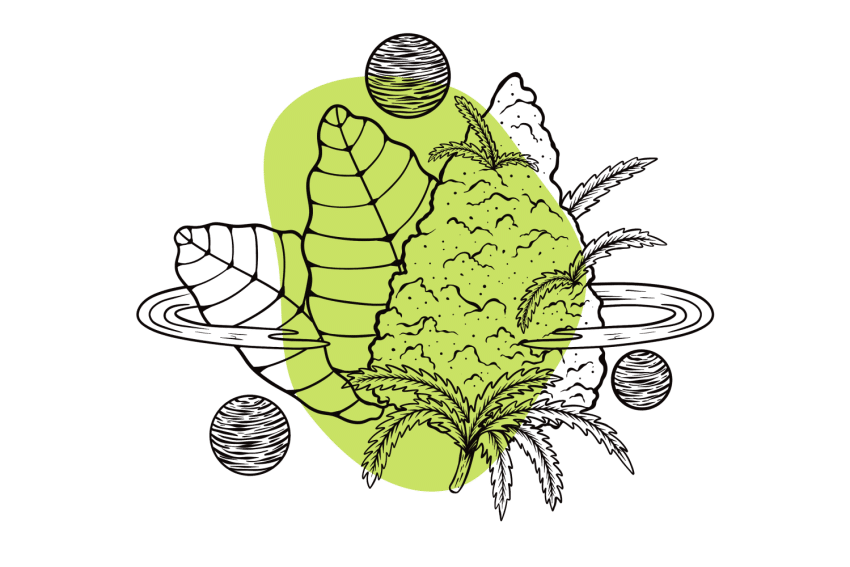How To Pass A Drug Test For Weed (Quickly)
Don’t panic — there are many ways to pass a drug test without anyone ever knowing you use weed.
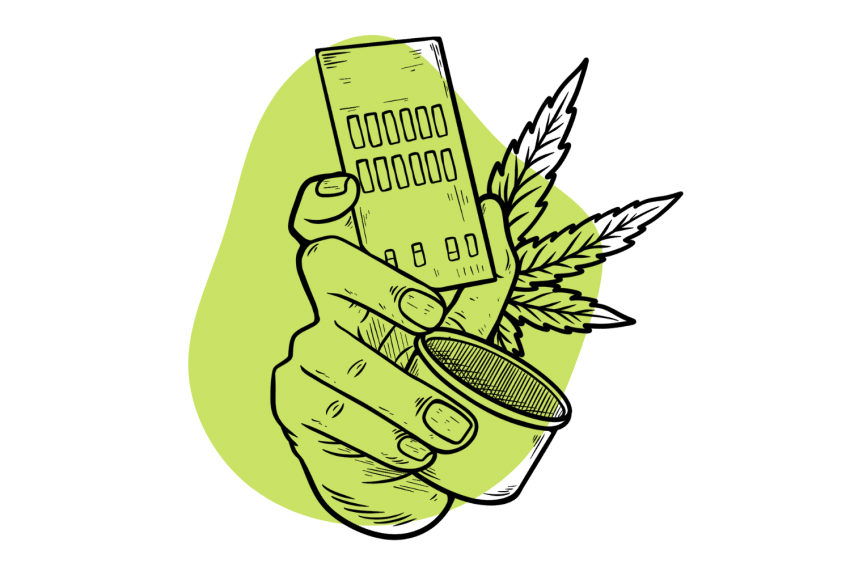
It’s not unusual for employers to ask for a drug test for applicants or their current employees. The thing is, they tend to happen without much notice, which puts us weed smokers in jeopardy. And if your job isn’t tolerant of weed, you might face a very challenging situation.
Here’s all you need to know about how long TCH stays in your system, the different types of drug tests — and tricks for passing them.
How Long Does THC Stay in Your System?
Drug tests look for THC, which is the substance that makes you feel high. Remember, even if you don’t feel high, it doesn’t mean there’s no THC left in your system.
THC binds to your body fat, meaning it takes quite a bit longer to dissolve than many other substances.
Many factors affect how long it will take before the weed stops being detectable in your body — its potency, how often you consume it, and your metabolism will hasten or delay the process [1].
Detectability will also depend on what type of drug test you’re taking, as THC doesn’t stick around for the same amount of time in your saliva as in your blood, for example.
THC can be detectable in your system for a minimum of 24 hours and a maximum of up to 45 days.
Keep in mind that the following averages are not set in stone — every person reacts to and metabolizes weed differently.
How Long Does THC Last in Urine?
Urine analysis can detect up to 50 nanograms of THC per milliliter, meaning only a few hits of a joint can be enough to make THC detectable. As THC easily binds to lipids, it will be easy to find through urine tests days after you last smoked.
When it comes to urine tests, how frequently you smoke affects how long the THC lasts. Generally, casual users have THC in their urine for up to 3 days after smoking, while heavy users have THC in their urine for up to 6 weeks after smoking.
Keep in mind that urine tests cannot determine whether you’re a newbie or a daily user, only that you have smoked recently.
How Long Does THC Last in Saliva?
Saliva tests are among the most accurate out there, boasting the smallest percentage of false positives and negatives. But there’s a catch: the window for detection is very small.
As the saliva in your mouth is an active substance that comes in contact with everything you ingest, it changes rapidly, and traces of what you consume don’t last very long. For that reason, THC in your saliva will only last between 24 and 72 hours.
How Long Does THC Last in Blood?
THC enters your bloodstream instantly after smoking or vaping weed, or within an hour after consuming an edible. Similarly to urine tests, the detectability window is relatively small for light users but quite large for heavy users.
If you use weed less than once a week, THC will remain in your bloodstream for between 1 and 7 days after smoking. If you use weed every day, THC will stay in your bloodstream for between 45 and 60 days.
How Long Does THC Last in Hair?
These tests are the least common and the least forgiving. Your hair will keep evidence of your weed habits for a very long time, and if you’re bald, testers can use body hair. Still, these tests are rare and unlikely to happen in a professional setting.
Generally, a hair follicle test can detect traces of THC between 90 and 120 days after smoking, but a heavy user’s hair can have detectable traces of THC for up to 6 months after the last joint.
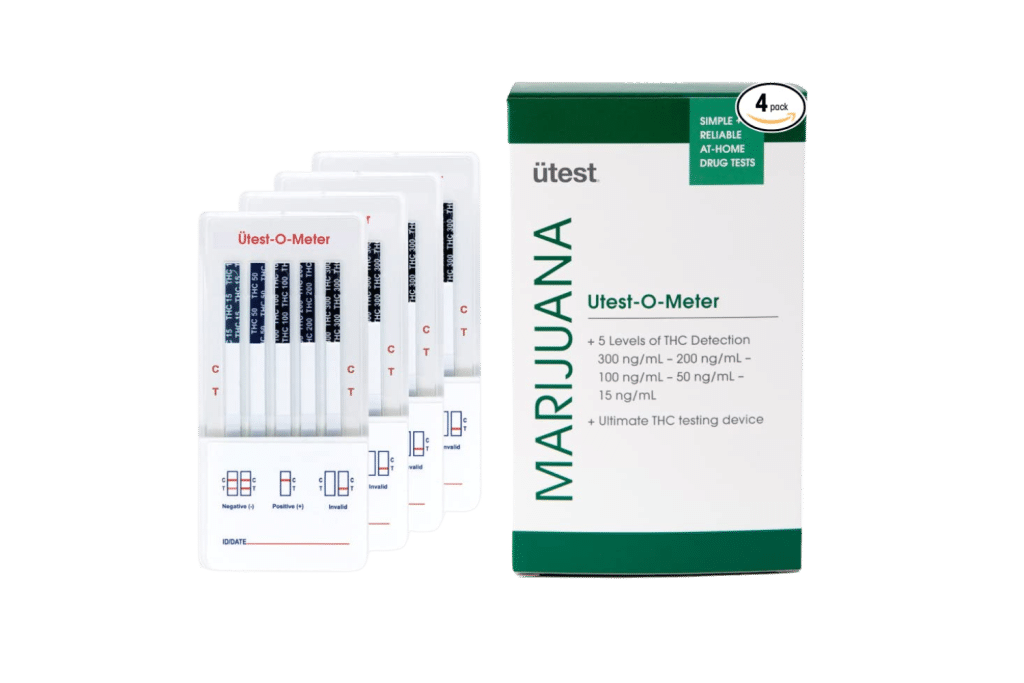
How to Pass A THC Test on Short Notice
Unlike alcohol, which can be quickly detected using a breathalyzer, weed tests are much more time-consuming. Also, it’s not possible to determine how much weed is in your system — only that THC is present.
Because THC binds to fatty substances, there are many methods of testing for its presence. The following are the most common:
- Urine Tests (most common)
- Saliva tests
- Blood tests
- Hair analysis
Now, if you’ve read this far, you might be a little concerned that you might get into trouble for having THC in your system. While there are no guarantees, there are a few ways to pass drug tests, even on short notice. Just remember — THC could still show up, so avoid it altogether if you’re concerned about passing a drug test.
If your idea is to come up with a convincing excuse for why there’s THC in your system, don’t. Do not rely on excuses, as lying in these situations can get you into deeper trouble.
These tests have very few cases of false positives, so it’s unwise to claim that your test result was one. Claiming that you’re a passive smoker won’t help either, as urine tests detect a minimum of 50ng/ml, much more than what a passive smoker would take in.
As a general rule, don’t try to use excuses to pass a drug test, especially with so many reliable methods around. Aside from abstaining for a while, which won’t work when a test is on short notice.
Urine Test
Urine testing is the most common drug testing method due to its low cost and how easy it is to carry out, but it’s not the most effective. If you’re taking a urine test, chances are weed is not the main thing they’re looking for, but harder drugs like cocaine or opioids.
Urine tests are helpful in determining what drugs a person has taken in the last few days, but they can’t ascertain how much they consume or how often.
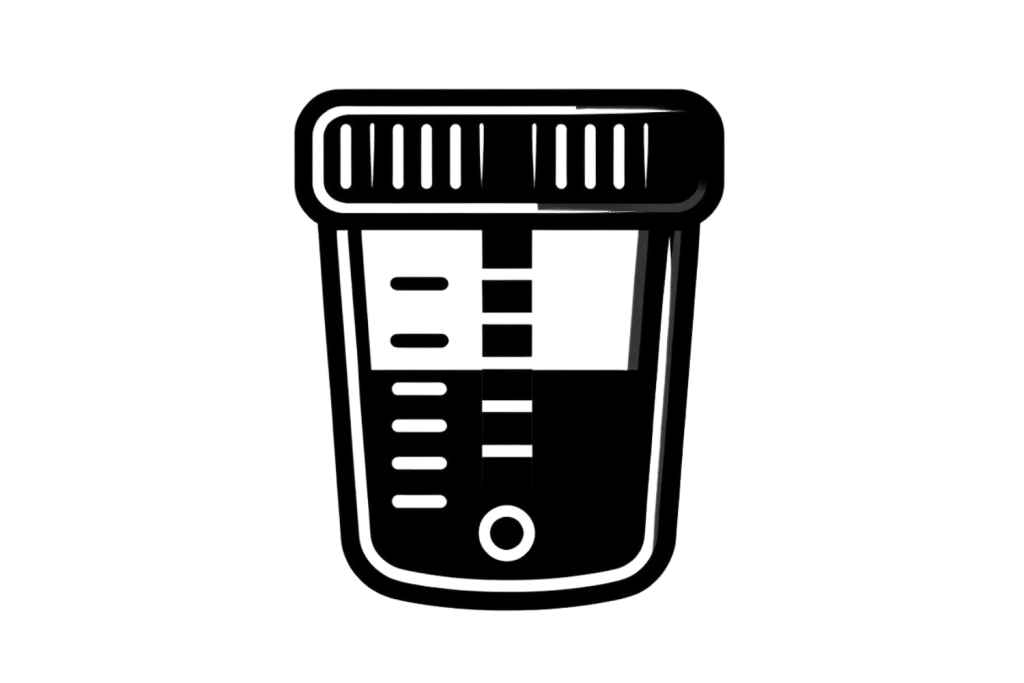
Tips For Passing a Urine Test
First of all, make sure not to use your first urine of the morning for the urine test, as drug metabolites — THC, in this case — build up in your system while you sleep.
A popular technique is known as “washing out,” or drinking a lot of water to urinate over and over and then doing the same right before the drug test. This can work, as water will dilute the THC in your urine.
If you’re going to try this, take vitamin B supplements. Otherwise, your urine will look clear and watery. Some laboratories outright reject clear samples, but vitamin B can restore your urine’s yellow tint.
Some people may also take diuretics to speed up the process further. Diuretics are substances that stimulate urination — coffee, cranberry juice, and green tea are some examples.
There are stronger diuretics on the market, but they are often only available with a prescription and can cause health complications.
Saliva Test
Though less common than urine tests, saliva tests are the cheapest form of testing, requiring only a mouth swab. These tests are also the most effective, as they can detect substances such as THC or other components of weed with 100% accuracy.
The catch is that saliva tests have the shortest window for detecting substances. As such, they are only really effective in checking if a person has consumed certain substances the previous day.
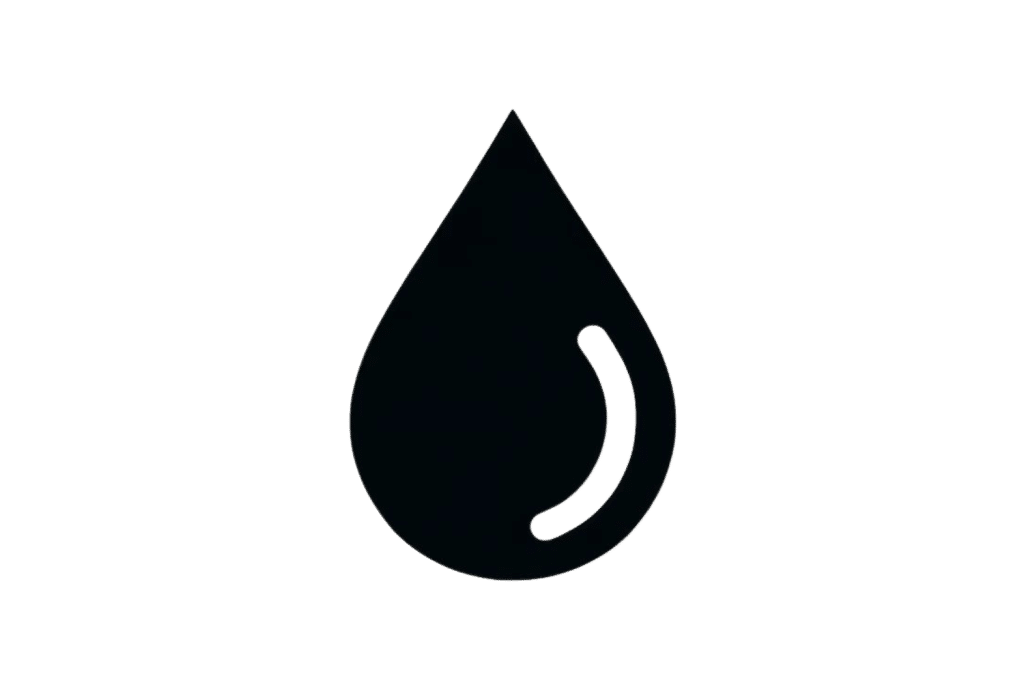
Tips For Passing a Saliva Test
For all their accuracy, saliva tests are also the easiest to fool. There’s a common misconception that merely brushing your teeth will remove all weed from your saliva, but that is untrue.
What you need is mouthwash, specifically mouthwash with a toxin-removing effect. As saliva tests are only effective 1-3 days after smoking, use the mouthwash in the morning right before going to take the test.
Keep in mind that heavy smokers might need a more thorough rinse, as traces of THC might remain even after using the mouthwash [2].
Blood Test
Blood tests are less standard than urine and saliva tests. They are highly effective at finding substances such as weed and other drugs in a person’s system, but they are costly and rarely used in professional settings.
The most common reason to use them is in cases of overdoses from harder substances like heroin. Despite this, weed users should be aware that THC lasts much longer in the bloodstream than many other substances.
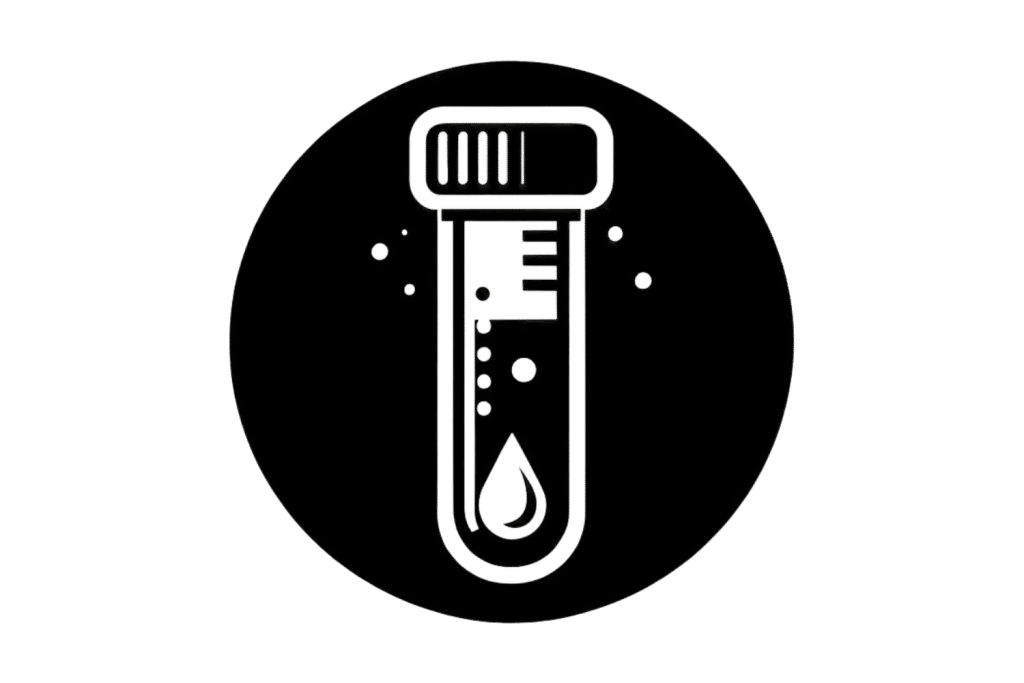
Tips For Passing a Blood Test
There’s no way to “cheat” a blood test. The best way to clear out the THC from your bloodstream is by doing a natural detox.
A natural detox consists of exercising, eating a healthy diet, drinking a lot of water, and sleeping well [3]. These actions help your body break down THC faster, as healthier metabolisms tend to be better at dealing with drug metabolites.
You can buy many products specifically for natural detoxes, but they won’t be of much use without doing the steps above.
Hair Test
Hair follicle tests are the least common drug tests because they are expensive. It’s generally only used for people working in law enforcement, people on probation, or medical patients.
Hair tests show traces of THC and other drugs for a much longer time, allowing the testers to see patterns of long-term drug use.
These tests are less common for employment reasons and more common in forensics, medical settings, and rehab programs.
Some controversy has arisen around hair tests, as thick, dark hair is more sensitive to them than fine, light hair, causing a bias in testing towards African Americans. Despite the FDA criticizing hair tests, some employers still use them.
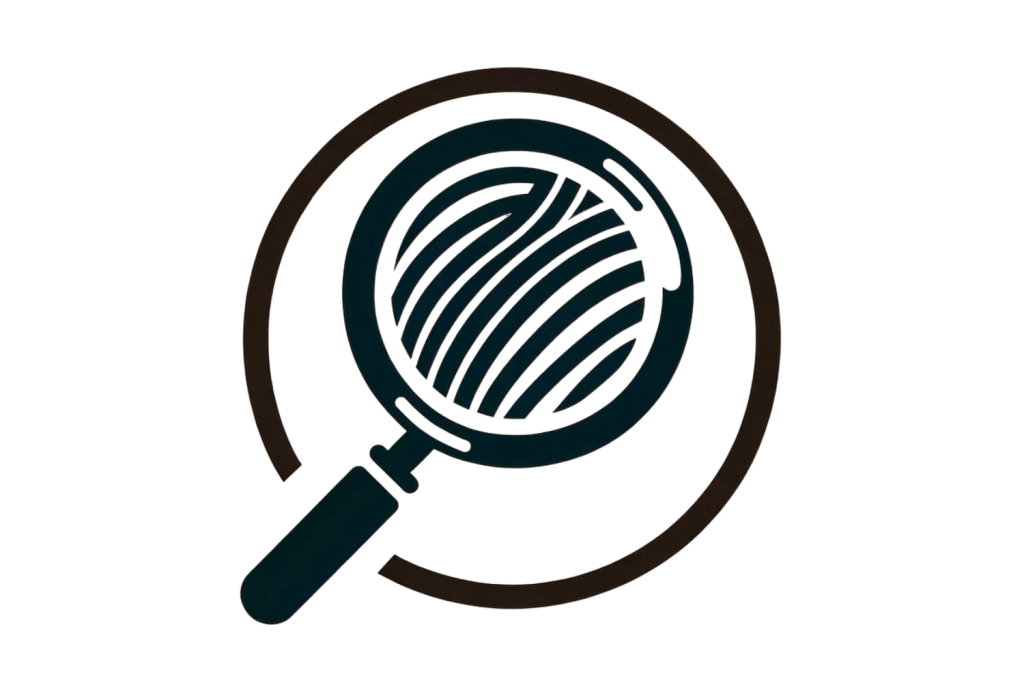
Tips For Passing a Hair Test
Hair tests are the hardest to beat, and there are many theories on how to pass them — but most don’t help. Let’s run through a few:
Shave Your Head
This one might seem the most obvious, but a hair test can use any hair on your body, not just your scalp. Not to mention, it’ll look suspicious if you show up to a hair drug test with a shiny bald head when you had hair the day before.
Bleach Your Hair
People have attempted this technique, but it’s not very effective. And again, showing up bleach-blonde on “hair drug test day” will raise several eyebrows.
Use Regular Shampoo
Some shampoo brands are known to reduce THC levels on the scalp. This might be useful for light users, but for heavy users, the reduction won’t be enough to pass the test [4].
The best way to get around a hair follicle test is by purchasing a detox shampoo. But keep in mind that the follicle test can detect some of these products, and depending on the state you’re in, it could cause legal problems.
Can a Positive for Weed Cause Problems At Work?
Not too long ago, the answer to this question would’ve been “yes,” but both laws and social perceptions regarding weed are changing.
Still, some things are overlooked and left by the wayside. In some states, such as Texas, medicinal cannabis is legal but not protected under labor laws. This means it could get you in trouble at work even if you’re not breaking laws.
In these cases, things will depend on how forward-thinking your employers are or how tolerant they are of weed. And here’s where the good news begins.
As attitudes and laws towards weed change, employers are becoming more lenient towards its use.
Despite this, there are still many cases in which testing positive for THC on a drug test may get you in trouble, so be careful. Your best bet is to steer clear of weed if drug tests are a concern for any reason.
FAQs About Drug Tests
There’s always more to know, so here are answers to questions you might be asking.
1. Can I go to jail if weed is detected in my system?
The answer to this varies from state to state. You could get into trouble if police are testing you due to suspicion of possessing weed in a state where it’s illegal.
2. What happens if I tamper with drug test results?
Regardless of the state laws, most will look down on tampering with the results. What kind of punishment you face is up to the local laws.
“Cheating” on a drug test can get you fined or arrested in Arkansas, Illinois, Nebraska, New Jersey, Texas, Oklahoma, Oregon, North Carolina, South Carolina, North Dakota, Pennsylvania, Virginia, Mississippi, and Wyoming.
3. Are there any substances that can cause false positives for marijuana?
Currently, there are no known substances that can cause false positives for weed. Ibuprofen used to cause false positives on urine tests, but more recent testing techniques have fixed that problem.
It’s important to note that even products like delta 8 and delta 10 can cause you to fail a drug test.
References
- Moeller, K. E. et al. (2017) Clinical Interpretation of Urine Drug Tests. Mayo Clinic Proceedings. https://www.mayoclinicproceedings.org/article/S0025-6196(16)30825-4/fulltext
- De Castro, A. et al. (2014) Assessment of different mouthwashes on cannabis oral fluid concentrations. National Center for Biotechnology Information. https://pubmed.ncbi.nlm.nih.gov/24453092/
- Wong, A., Montebello, M. E., Norberg, M. M., Rooney, K., Lintzeris, N., Bruno, R., Booth, J., Arnold, J. C., & McGregor, I. S. (2013). Exercise increases plasma THC concentrations in regular cannabis users. Drug and alcohol dependence, 133(2), 763–767. https://doi.org/10.1016/j.drugalcdep.2013.07.031
- Röhrich, J. et al. (2000) Effect of the shampoo Ultra Clean on drug concentrations in human hair. National Center for Biotechnology Information. https://pubmed.ncbi.nlm.nih.gov/10741485/


